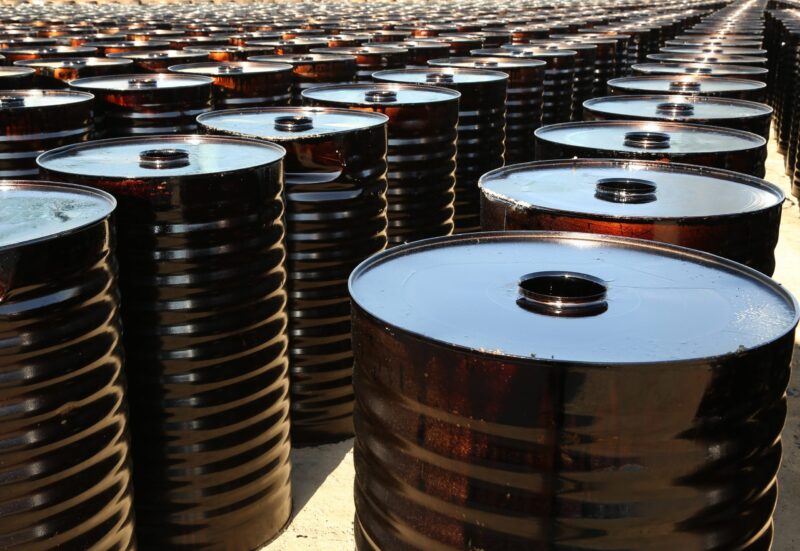🔍 Understanding Viscosity Grade Bitumen and Its Applications
Viscosity Grade (VG) Bitumen is a standard bitumen classification system based on the material’s viscosity at specific temperatures. Unlike penetration-grade bitumen, VG bitumen offers a more accurate reflection of how it performs under real-world temperature and load conditions, making it a preferred choice in modern road construction.
Whether you’re building highways, airport runways, or rural roads, choosing the right viscosity grade can significantly impact durability, flexibility, and resistance.
🧪 Understanding What is Viscosity Grade Bitumen?
Viscosity Grade Bitumen is classified by its viscosity (thickness) at 60°C and 135°C. These two temperatures simulate the real conditions bitumen faces—60°C represents pavement surface temperature, while 135°C reflects mixing temperature with aggregates.
🔎 Key Features:
-
Defined by IS 73:2013 (India), ASTM D3381 (USA)
-
More consistent performance than penetration grade
-
Measured in Poise (P) and Centistokes (cSt)
-
Offers better temperature susceptibility control
🧱 Types of Viscosity Grade Bitumen
| Grade | Viscosity Range @ 60°C (Poise) | Common Applications |
|---|---|---|
| VG-10 | 800–1200 | Cold climates, spraying applications |
| VG-20 | 1600–2400 | Moderate climates, rural roads |
| VG-30 | 2400–3600 | Hot climates, heavy traffic roads |
| VG-40 | 3200–4800 | Industrial areas, highways, heavy load roads |
🔹 VG-10 Bitumen
VG-10 has the lowest viscosity among VG grades, making it ideal for cold climate regions. It’s commonly used in spraying applications, surface dressing, and thin bituminous layers. Its fluid nature allows easy handling at lower temperatures.
🔹 VG-20 Bitumen
VG-20 is suitable for moderate climate conditions and is often used in low to medium traffic roads. It offers better coating and binding compared to VG-10, making it useful in both rural and urban pavement applications.
🔹 VG-30 Bitumen
VG-30 is widely used in hotter climates and high-traffic areas such as national highways. It provides excellent resistance to rutting and cracking, making it a preferred choice for durable asphalt pavement in tropical zones.
🔹 VG-40 Bitumen
VG-40 is the highest viscosity grade, designed for heavy-duty pavements, industrial zones, and high-load areas. It performs exceptionally under extreme stress and temperature, extending pavement life under demanding conditions.
Characteristics of Viscosity Grade Bitumen
Viscosity Grade Bitumen is characterized by its viscosity, which is measured in terms of penetration and softening point. The viscosity determines the flow behavior of the bitumen at different temperatures. The lower the viscosity grade, the softer the bitumen and the higher its flowability. Conversely, higher viscosity grades indicate harder bitumen with lower flowability.
Viscosity Grade Bitumen is classified according to the penetration test, which measures the depth in millimeters to which a standard needle penetrates the bitumen sample under specific conditions. The softening point is another important characteristic that indicates the temperature at which the bitumen becomes soft and loses its solid properties.
🛣️ Applications of Viscosity Grade Bitumen
🚧 1. Road Construction
VG bitumen is widely used in asphalt pavement construction for its ability to withstand varying traffic loads and temperatures.
🏗️ 2. Asphalt Mixing Plants
The consistent viscosity of VG bitumen makes it ideal for hot mix asphalt (HMA) production, ensuring uniform mixing and coating.
🛫 3. Airports and Runways
High-performance grades like VG-30 and VG-40 are used in airfield pavements due to their resistance to shear stress and fuel spills.
🏭 4. Industrial Paving
VG-40 is preferred in heavy-duty industrial zones and container yards for its superior load-bearing capacity.
Viscosity Grade Bitumen finds extensive use in various industries due to its unique properties. Some of the key applications include:
- Road Construction
Viscosity Grade Bitumen is widely used in road construction for asphalt pavement. Its ability to provide strong adhesion and resistance to deformation makes it suitable for creating durable road surfaces. The appropriate viscosity grade is chosen based on the expected traffic load and the climatic conditions of the region.
- Waterproofing
Due to its excellent weather resistance and impermeability, Viscosity Grade Bitumen is commonly used for waterproofing applications. It is applied as a coating or membrane to protect structures, such as roofs, basements, and foundations, from water penetration. The choice of viscosity grade depends on factors such as the type of structure and the expected exposure to water.
- Industrial Applications
Viscosity Grade Bitumen is also utilized in various industrial applications. It is used as a raw material in the manufacturing of roofing materials, adhesives, sealants, and insulation products. The appropriate viscosity grade is selected based on the specific requirements of the industrial application.
📊 Comparison Table – Viscosity Grades and Their Suitability
| VG Grade | Climate Suitability | Load Resistance | Application |
|---|---|---|---|
| VG-10 | Cold | Light to Medium | Hill roads, surface dressing |
| VG-20 | Moderate | Medium | Rural roads, town roads |
| VG-30 | Warm/Hot | High | National highways, urban roads |
| VG-40 | Very Hot & Industrial | Very High | Expressways, airports, ports |
✅ Benefits of Viscosity Grade Bitumen
-
🌡️ Temperature Resistance: Better performance in extreme climates
-
🛣️ Traffic Load Adaptability: Suitable for light to heavy-duty roads
-
🔁 Uniformity: Controlled mixing and application properties
-
🧪 Predictable Performance: Defined behavior at high & low temperatures
-
♻️ Economical Maintenance: Longer pavement life = lower lifecycle costs
Viscosity Grade Bitumen offers several benefits that contribute to its widespread use in various industries. Some of these benefits include:
- Durability
Viscosity Grade Bitumen provides excellent durability, ensuring that the constructed surfaces can withstand heavy traffic, extreme weather conditions, and other environmental factors. This results in longer-lasting infrastructure with reduced maintenance requirements.
- Weather Resistance
Bitumen possesses excellent weather resistance properties. It can withstand temperature fluctuations, UV radiation, and moisture, making it an ideal material for outdoor applications. This resistance to weathering helps maintain the integrity and performance of the structures over time.
- Flexibility
Viscosity Grade Bitumen exhibits high flexibility, allowing it to adapt to the movement and defomation of the underlying surfaces. This flexibility helps prevent cracks and other forms of damage, ensuring the longevity of the constructed infrastructure.
- Cost-Effectiveness
Using Viscosity Grade Bitumen can lead to cost savings in the long run. Its durability and low-maintenance properties reduce the need for frequent repairs and replacements. Additionally, its availability and ease of application contribute to cost-effectiveness in construction projects.
- Environmentally Friendly
Viscosity Grade Bitumen is considered environmentally friendly compared to other materials. It is a byproduct of crude oil refining, which reduces the need for additional raw materials. Furthermore, it can be recycled and reused, minimizing waste generation and promoting sustainability.
| Grade | Viscosity Range @ 60°C (Poise) | Common Applications |
|---|---|---|
| VG-10 | 800–1200 | Cold climates, spraying applications |
| VG-20 | 1600–2400 | Moderate climates, rural roads |
| VG-30 | 2400–3600 | Hot climates, heavy traffic roads |
| VG-40 | 3200–4800 | Industrial areas, highways, heavy load roads |
❓ Frequently Asked Questions (FAQ)– Viscosity Grade Bitumen
1. ❔ What is the difference between VG bitumen and penetration grade bitumen?
📏 VG bitumen is classified based on viscosity, while penetration grade is based on needle penetration depth. VG is more reliable for performance prediction.
2. ❔ Which VG grade is best for highways?
🛣️ VG-30 and VG-40 are ideal for heavy traffic and hot regions.
3. ❔ Is VG bitumen used for spraying applications?
✅ Yes, VG-10 is often used for surface dressing and spraying in cooler areas.
4. ❔ How is viscosity measured in VG bitumen?
🧪 It’s measured in Poise at 60°C and Centistokes at 135°C using a viscometer.
5. ❔ Can VG bitumen be stored for a long time?
🛢️ Yes, if stored in a cool, sealed environment, VG bitumen remains stable for months.
🏁 Conclusion- Understanding Viscosity Grade Bitumen
Viscosity Grade Bitumen is a versatile material with various applications in road construction, waterproofing, and industrial sectors. Its unique characteristics, such as viscosity and softening point, make it suitable for different purposes. By leveraging the benefits of Viscosity Grade Bitumen, construction projects can achieve durable, weather-resistant, and cost-effective results.
📣 Call to PARS Universal Bitumen
👉 Looking for high-quality Viscosity Grade Bitumen?
We in Pars Universal Bitumen, supply VG-10, VG-20, VG-30, and VG-40 with complete technical documentation and bulk availability.
📞 Contact us now for a quote or consultation.
🌐 Visit Our Bitumen Products Page → Pars Universal Bitumen: Viscosity Grade Bitumen
📧 Email: [email protected]
📞 Phone: +971 4 878 2031
🌐 Visit: Pub-ltd
🛒 Order Viscosity Grade Bitumen Today. If You have any other Query or Question you want to ask, Please don’t hesitate to Contact Us.





